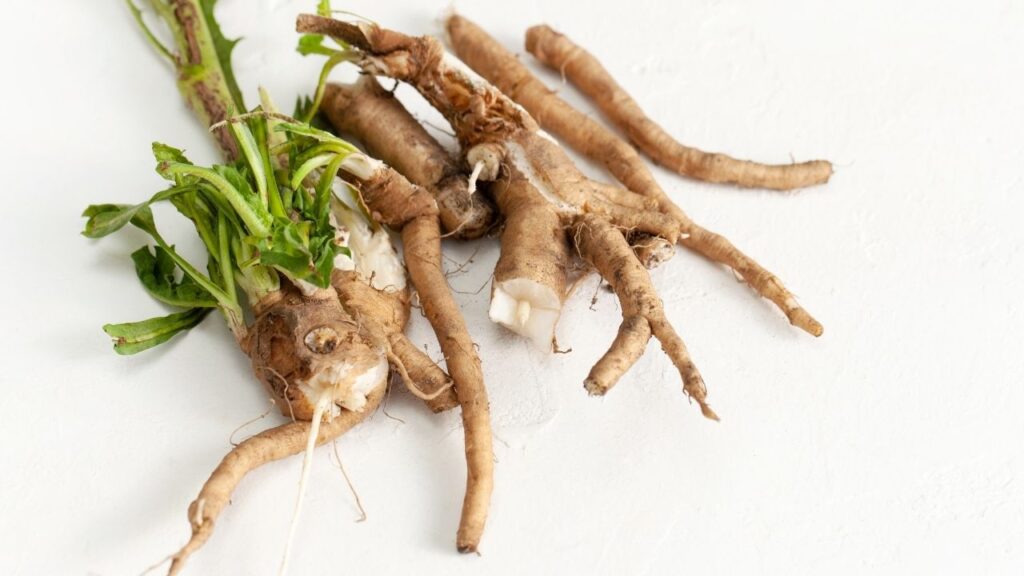Much like fish oil, the omega-3 fatty acids in krill oil can be useful in killing cancer cells and even boost the efficacy of chemotherapy. Krill oil is a nice addition to your dog’s diet as side effects are minor and anticancer capacity is promising.
Key Takeaways
- Krill oil is good for dogs because it is an excellent source of omega-3 fatty acids.
- You can give your dog with cancer about 1500mg of krill oil per 10 pounds of body weight, but a healthy dog would not get this high an amount.
- You can give your dog “human” krill oil capsules.
- Side effects of krill oil in dogs can include nausea, vomiting, and diarrhea.
- Some studies indicate that krill oil may be better than fish oil.
What Is Krill Oil?
Krill oil is an extract from the Antarctic krill (Euphausia superba), a small swimming crustacean found in the Southern Ocean. They resemble a small shrimp, and are an important food source for many species found in colder waters including whales, penguins, squid, fish, and seals.
- Krill oil is rich in omega-3 fatty acids, including eicosatetraenoic acid (EPA) and docosahexaenoic acid (DHA).1,2
- Krill oil also contains astaxanthin, an antioxidant.2
- Collectively, they help contribute to krill oil’s incredible health benefits.1,2
Krill oil is distinct from algal oil, cod liver oil, fish oil, and shark liver oil, and has some important differences. For example, krill oil contains higher amounts of choline-containing phospholipids, which make it easier for the body to absorb krill oil than other types of fish oil.2,7
Krill oil is typically marketed and sold as a dietary supplement and is readily available over the counter at most grocery stores, pharmacies, and online. It can be purchased in pill or powder form. There are even brands of krill oil that are specially tailored to dogs.
Evidence for Efficacy of Krill Oil for Dogs with Cancer
In general, more research is needed to understand the anticancer and health properties of krill oil, but based on current understanding, krill oil has promise.
Omega-3 Fatty Acids
Omega-3 fatty acids are the primary compounds responsible for the health benefits of krill oil.
Your dog’s body doesn’t produce many omega-3 fatty acids on its own.3 Finding ways to supplement it into your dog’s diet can be extremely helpful, as these compounds are known to help with canine cognitive issues, play a role in the growth of puppy brains, reduce swelling and pain, prevent blood from easily clotting, and possess anticancer properties.3
Astaxanthin
In regard to cancer prevention, krill oil contains an antioxidant called astaxanthin which neutralizes free radicals in the body.2 This is helpful because too many free radicals can cause oxidative stress to healthy cells, which can promote the development of cancer.
Cancer Studies
Krill oil has also shown efficacy in helping to treat cancer. A study that exposed human colorectal cancer cells to krill oil in the laboratory showed significant levels of cancer cell death, or apoptosis, as well as a significant reduction in cancer cell proliferation.4
Another study tested the effects of krill oil on human bladder cancer cells in the laboratory and on bladder cancer in mice. Results showed that bladder cancer cells treated with krill oil were unable to move past a cell cycle checkpoint necessary for division.5
When bladder cancer cells were injected into mice, mice that were given 100 to 300 milligrams of krill oil per kilogram of weight had significantly lower rates of tumor growth than their control counterparts.5 In addition, the presence of krill oil appeared to make it far more difficult for angiogenesis, or the formation of new blood vessels, to take place, which is necessary for tumor development.5
Krill oil may also be able to boost the effects of a chemotherapy drug called oxaliplatin.6 A study randomly divided 36 mice into six groups supplemented individually with krill oil, corn oil, krill oil combined with a half dose of oxaliplatin, corn oil combined with a half dose of oxaliplatin, a full dose of oxaliplatin, and a control group that received a regular diet.
Remarkably, a significant reduction in tumor volume was observed in the groups that were given krill oil and krill oil with a half dose of oxaliplatin. This reduction was comparable to the group that was given a full dose of oxaliplatin, suggesting that krill oil works synergistically with oxaliplatin.6
Common Uses of Krill Oil for Dogs
Krill oil is an anti-inflammatory, so it lends itself to the treatment of many ailments.
Aside from cancer, krill oil is also used to support brain health and lower levels of triglycerides and cholesterol.1,2 It can also be used to help treat high blood pressure, osteoarthritis, and premenstrual syndrome and is helpful to patients recovering from a stroke.2,9
Studies on the efficacy of krill oil for specific types of cancer have found promising results for colorectal cancer cells as well as bladder cancer cells both in the laboratory and in mouse studies.4,5
Safety and Side Effects
In humans, side effects such as stomach upset, heartburn, flatulence, diarrhea, bloat, nausea, constipation, and cramping have been reported.1
Avoid giving your dog krill oil if they have a seafood allergy, which is rare.
You should also avoid giving your dog krill oil at least two weeks before surgery to minimize the chances of blood clotting issues.1,2
Krill oil may contain heavy metal pollutants from the sea water, including methylmercury. It’s highly unlikely that these would be of issue, since krill are towards the bottom of the food chain and heavy metals do not accumulate within them.2
Can Be Given With
Krill oil appears to be safe to use with chemotherapeutics and may even boost their effects.6
However, you’ll ultimately want to check with your veterinarian before starting a krill oil supplement. This helps ensure that krill oil itself, as well as the amount you give your dog, is safe with your dog’s current dietary and medication plans.
When to Not Use Krill Oil for Dogs
Krill oil should be used with caution in dogs who are prone to pancreatitis or sensitive to fat.3
You should not give krill oil to your dog if they are two weeks or less from getting a surgical procedure, as krill oil can act as an anti-coagulant1 and may cause bleeding issues during and in recovery from surgery.2
For the same reason, use with caution if your dog is actively bleeding, for example, as happens with nasal tumors.
In general, krill oil may have some negative interactions with anticoagulant or antiplatelet medications as well as nonsteroidal anti-inflammatories.2
There’s not much information on the effect krill oil may have on pregnancy, so dogs that are pregnant should not be given krill oil as a precaution.
How to Give Krill Oil to Dogs
You’ll want to consult with your veterinarian to determine the best dose of krill oil for your dog. A rough guideline is about 1500mg (EPA/DHA Combined total) per 10 pounds of body weight for a dog with cancer.8 NOTE: These are high doses intended for use in a dog with cancer; a healthy dog would get a lower dose.
Krill oil has higher bioavailability than other types of fish oil,7 so your dog may not need as high of a dose as other fish oil types or brands.
You can give krill capsules whole or puncture them to squeeze the oil out and mix into food. Humans often don’t like the taste of fish and krill oil, but dogs don’t seem to mind it.
If you are using liquid form, the oil only lasts a few months after a bottle has been opened. If your krill oil comes in a pump bottle, the pump traps more air in the bottle, so it will spoil faster than krill oil packaged in a bottle that moves up as it empties. The bottom line for liquid krill oil is if it smells super fishy it is rancid: toss it out.
What If I Miss a Dose?
Missing a dose of krill oil here and there is okay. Do not double the dosage if you missed a day. Simply follow individual supplement packaging instructions with the modifications as prescribed by your veterinarian.
Typically, missing a dose just means following up on the next day’s schedule normally.
Storage and Handling
Krill oil is usually stored at room temperature and kept away from moisture and heat.2 However, this may not always be the case, and you’ll want to follow the instructions on your particular product’s labeling.
Our Take on Krill Oil for Dogs
Krill oil has high bioavailability and can be an easy way to get omega-3 fatty acids into your dog’s diet. Its promising anticancer benefits that have been demonstrated in the lab and in animal models make it worth asking your veterinarian about.
- Kwantes JM, Grundmann O. A brief review of Krill Oil History, research, and the commercial market. Journal of Dietary Supplements. 2014;12(1):23-35. doi:10.3109/19390211.2014.902000
- No author. Krill Oil. Drugs.com. No publication date available. https://www.drugs.com/krill-oil.html. Accessed on February 2, 2023.
- Lenox C. Role of dietary fatty acids in dogs & cats. Today’s Veterinary Practice. https://todaysveterinarypractice.com/nutrition/role-of-dietary-fatty-acids-in-dogs-cats/. Published August 19, 2016. Accessed April 17, 2023.
- Jayathilake AG, Senior PV, Su XQ. Krill oil extract suppresses cell growth and induces apoptosis of human colorectal cancer cells. BMC Complement Altern Med. 2016;16(1):328. doi:10.1186/s12906-016-1311-x
- Kim H, Roh Y, Park SY, et al. In vitro and in vivo anti-tumor efficacy of krill oil against bladder cancer: Involvement of tumor-associated angiogenic vasculature. Food Res Int 2022;156:111144.
- Jayathilake AG, Hassanzadeganroudsari M, Jovanovska V, Luwor RB, Nurgali K, Su XQ. The comparative anti-cancer effects of krill oil and oxaliplatin in an orthotopic mouse model of colorectal cancer. Nutr Metab (Lond). 2022;19(1):12. doi:10.1186/s12986-022-00646-8
- Dressler D, Ettinger S. The Dog Cancer Survival Guide: Full Spectrum Treatments to Optimize Your Dog’s Life Quality and Longevity. Maui, HI: Maui Media, LLC; 2011.
- Zhou DY, Liu YX, Xu ZL, et al. Effects of long-term intake of Antarctic krill oils on artery blood pressure in spontaneously hypertensive rats. J Sci Food Agric. 2017;97(4):1143-1148. doi:10.1002/jsfa.7840
Topics
Did You Find This Helpful? Share It with Your Pack!
Use the buttons to share what you learned on social media, download a PDF, print this out, or email it to your veterinarian.







